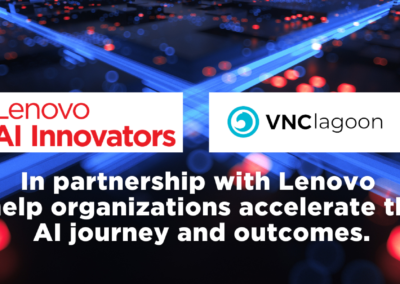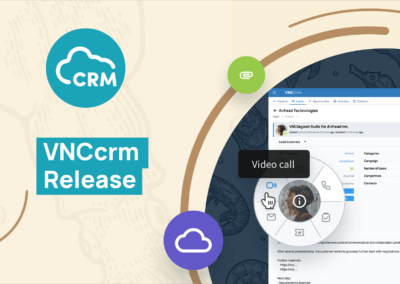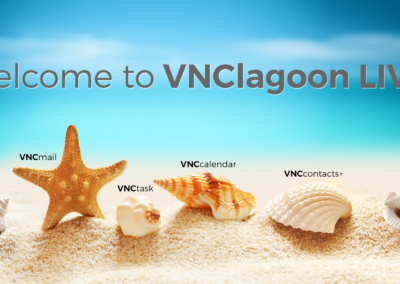Zug, 28 November 2022 –The days of centralized and proprietary cloud solutions are numbered. VNC lists the most important reasons for this and explains the prerequisites for end-to-end decentralized cloudification.
Centrally organized and marketed cloud infrastructures, along with the applications offered, are already reaching their natural limits. The two main limiting factors are closed source software and proprietary delivery models. Both prevent the rapid development of applications and their cloud-agnostic use. Users are thus deprived of the ability to choose the solution that best suits their requirements in the most appropriate delivery form, as well as to be able to change it quickly and easily at any time, if necessary. VNC, a leading developer of open source-based enterprise applications, identifies the key requirements for cloud decentralization.
- All service levels must be decentralized: Decentralization is a typical feature in IT, and it either works perfectly or not at all. That is why all tiers of the cloud services layer model must meet this requirement – from the infrastructure to the platforms to the applications. Any exception represents a stumbling block and undermines decentralization as a whole.
- IaaS must be replicable: In terms of infrastructure services, this means connecting data centers and creating replication capabilities between them. In this way, disruptions such as power failures or cyberattacks can be absorbed, and platforms and applications are independent of data centers.
- PaaS must be cloud agnostic: The exclusive provision of applications by vendors solely via their own platforms is not compatible with decentralization. Applications must be platform-independent, whether on-premises or in a private, public, hybrid or multi-cloud. In other words, they must be cloud-agnostic.
- SaaS must be containerized: The right way to decentralize applications is to containerize them with Kubernetes. This makes them IaaS and PaaS independent, as they run in a fully virtualized environment. Again, proprietary solutions or changing standards through “customizing” are counterproductive.
“Decentralized cloud computing gives users the freedom to choose among different applications and platforms,” emphasizes Andrea Wörrlein, Managing Director of VNC in Berlin and member of the Board of VNC AG in Zug. “Through infrastructure independence, it also increases IT security and resilience.”
About VNC – Virtual Network Consult AG
VNC – Virtual Network Consult AG, based in Switzerland, Germany and India, is a leading developer of open source-based enterprise applications and positions itself as an open and secure alternative to the established software giants. With VNClagoon, the organization with its global open source developer community has created an integrated product suite for enterprises, characterized by high security, state-of-the-art technology and low TCO. VNC’s customers include system integrators and telcos as well as large enterprises and institutions.
Further information on https://vnclagoon.com, on Twitter @VNCbiz and on LinkedIn.
Contact
Andrea Wörrlein
VNC – Virtual Network Consult AG
Poststrasse 24
CH-6302 Zug
Phone: +41 (41) 727 52 00
aw@vnc.biz
Beatrice Ferri
PR-COM GmbH
Sendlinger-Tor-Platz 6
80336 München
Phone: +49-89-59997-704
beatrice.ferri@pr-com.de










































